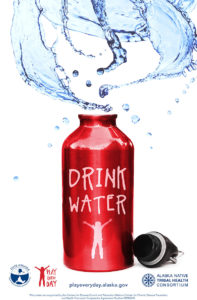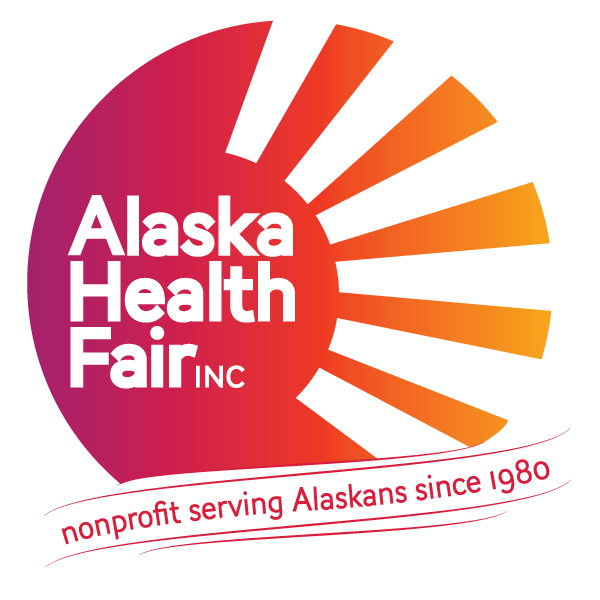
Drink water poster
Many are looking forward to the winter sport activities. But just because you play sports doesn’t mean you need sports drinks. A number of coaches and other sports professionals are advising their athletes to make better choices when they hydrate their bodies.
Matt Thomas is one of these coaches.
“(Sports and energy) drinks are short-burst stimulants, and can have a lot of sugar, and they are not the right type of thing to be putting into your body routinely,” said Thomas, the head coach for the University of Alaska Anchorage Seawolves men’s hockey team. “We discourage our players from drinking them and we educate them on the proper, healthier ways to hydrate and create the needed focus and energy. We understand that there isn’t a very good correlation to performance from using sports or energy drinks.”
Thomas says he encourages his players to consume healthy meals when training or preparing for a game, and to choose drinks like water or milk.
“We know that water is always a good choice,” he said.
Thomas said his hockey players, like many college students, don’t always make the best food and drink choices, but part of their pre-season training is meeting with a sports nutritionist.
“We give the kids an opportunity to get good information on how to fuel your body the proper way,” he said. “These guys are grown men who can make their own decisions, but they are interested in what they should consume to make their bodies work best, and they understand there are other things you can do for your body that are better than sports drinks.”
Rikki Keen is a sports nutritionist who has worked with the UAA Men’s Hockey team many times. She discourages sports and energy drinks for athletes of all ages, but especially for children under 18.
“Kids are growing rapidly, and of all the times of their lives, this is not the time to be consuming those poor-nutrient-based drinks,” she said.
Keen worries about the way these beverages are marketed, to make it seem like they are what your body requires during or after exercising. The drinks come in pretty colors and flavors, she said. Their labels often say they contain electrolytes, like sodium or potassium, that your body loses when you sweat during physical activity. But Keen says you can get more sodium and potassium in a cup of milk than from a sports drink.
“Calories are not created equal,” Keen said. “You need to ask yourself: Is it necessary to have a sports drink when you can get the same things from a banana and water?”
Story submitted by the State of Alaska Play Every Day campaign. Big thanks to our partners at DHSS.
